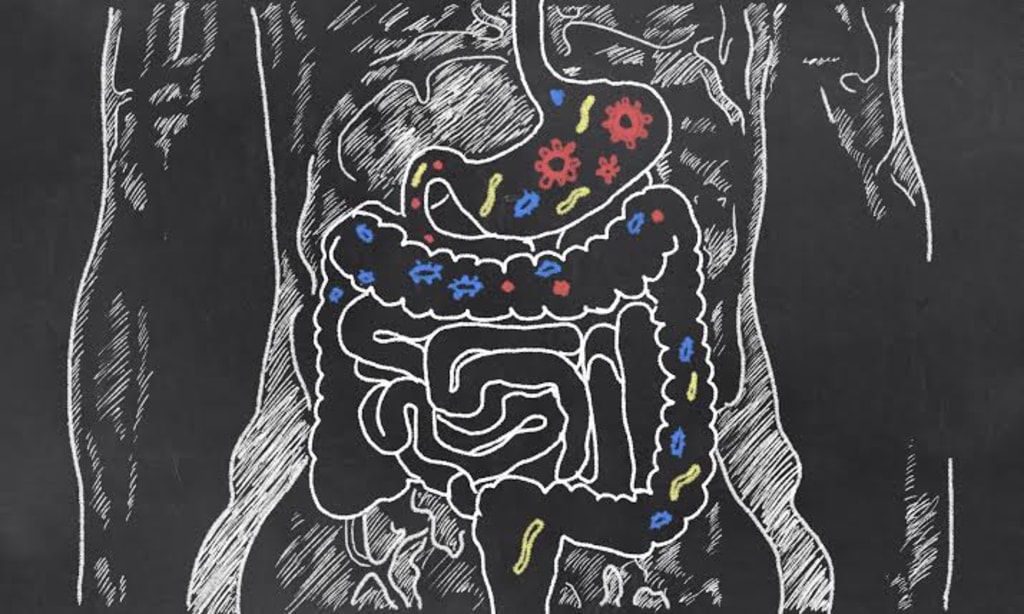
Mental health is a critical aspect of overall health, and the number of people affected by mental health disorders is increasing globally. According to the World Health Organization (WHO), around 1 in 4 people in the world will be affected by mental or neurological disorders at some point in their lives. While the causes of mental health disorders are complex, emerging research suggests that the gut microbiome may play a significant role in mental health.
The gut microbiome is the community of microorganisms that inhabit the human gastrointestinal tract. Recent studies have shown that the gut microbiome has a profound impact on the brain and behavior through the gut-brain axis. The gut-brain axis is a bi-directional communication pathway between the gut microbiome and the central nervous system (CNS), which includes the brain and spinal cord.
The gut microbiome produces neurotransmitters and other molecules that affect the CNS, including serotonin, dopamine, and gamma-aminobutyric acid (GABA). These molecules are known to be involved in mood regulation, anxiety, and stress response. Therefore, changes in the composition and function of the gut microbiome may lead to alterations in these pathways and contribute to the development of mental health disorders.
Several studies have shown that alterations in the gut microbiome are associated with mental health disorders such as depression, anxiety, and post-traumatic stress disorder (PTSD). For example, a study published in the journal Nature Microbiology found that patients with major depressive disorder (MDD) had lower levels of certain beneficial gut bacteria compared to healthy controls. Another study published in the Journal of Psychiatric Research found that individuals with PTSD had a less diverse gut microbiome compared to those without PTSD.
Furthermore, studies in animal models have also provided evidence for the link between the gut microbiome and mental health. For example, a study published in the journal Brain, Behavior, and Immunity found that germ-free mice, which lack gut microbiota, exhibited increased anxiety-like behavior compared to control mice with a normal gut microbiome. Additionally, the study found that reintroducing gut bacteria into the germ-free mice reduced their anxiety-like behavior.
While the evidence for the link between the gut microbiome and mental health is still emerging, it provides a promising avenue for the development of new treatments for mental health disorders. One potential approach is the use of probiotics, which are live microorganisms that confer a health benefit when administered in adequate amounts. Probiotics have been shown to have beneficial effects on mental health in several clinical trials. For example, a study published in the Journal of Psychiatric Research found that taking a probiotic supplement for four weeks improved anxiety and depression symptoms in patients with MDD.
here's some more information on the link between gut microbes and mental health:
The gut microbiome is composed of trillions of microorganisms, including bacteria, viruses, and fungi. These microorganisms play a critical role in maintaining the health of the gastrointestinal system and are involved in digestion, absorption of nutrients, and immune system function. However, the gut microbiome is not just limited to the gut, and it is now known to have a systemic impact on other organs, including the brain.
The gut-brain axis is a complex bidirectional communication pathway that involves neural, endocrine, and immune signaling. The vagus nerve, which connects the gut to the brain, plays a crucial role in this communication pathway. The gut microbiome produces a range of metabolites and signaling molecules that can activate or inhibit the vagus nerve and affect brain function and behavior.
One of the ways that the gut microbiome affects brain function is through the production of neurotransmitters. The gut microbiome produces a range of neurotransmitters, including serotonin, dopamine, and GABA, which are known to affect mood, anxiety, and stress response. Alterations in the gut microbiome can lead to imbalances in neurotransmitter levels, which may contribute to the development of mental health disorders.
The gut microbiome also produces other signaling molecules, including short-chain fatty acids (SCFAs), which have been shown to have a range of beneficial effects on brain function. SCFAs are produced by the fermentation of dietary fiber by gut bacteria and can affect the expression of genes involved in brain function and immune system regulation.
Several factors can affect the composition and function of the gut microbiome, including diet, medication use, stress, and infections. A diet high in processed foods and low in fiber can lead to changes in the gut microbiome, as can the use of antibiotics, which can disrupt the balance of gut bacteria. Stress has also been shown to affect the gut microbiome, with chronic stress associated with reduced microbial diversity and alterations in the production of neurotransmitters and other signaling molecules.
In conclusion, the gut microbiome is emerging as a critical factor in the development and treatment of mental health disorders. Alterations in the gut microbiome can affect brain function and behavior through the gut-brain axis, and interventions that target the gut microbiome may provide new avenues for the treatment of mental health disorders. Further research is needed to fully understand the mechanisms underlying the link between the gut microbiome and mental health and to develop new treatments based on this connection.
About the Creator
9FunFacts
belief in or acceptance of something as true.






Comments
There are no comments for this story
Be the first to respond and start the conversation.